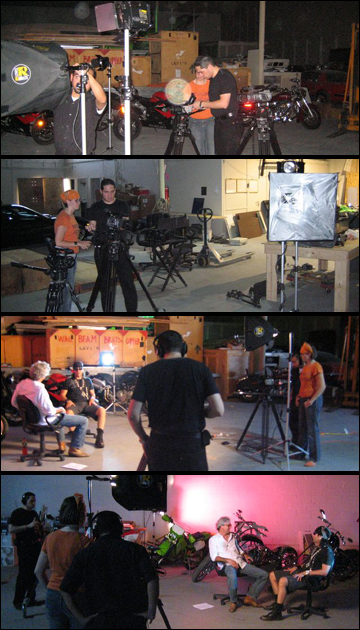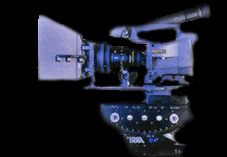In the past 30 years, television has
gone through some major changes: cable networks, video tapes, digital TV,
and more. But the upheaval in just the last 10 years has been greater than
everything before this -- and it's just getting started.
For those about to enter the business now, that's good news.
Why? Because you'll be the ones to conceive, experiment with and
develop an entirely new model of television. In fact, it's such a
revolution that you'll have to invent new words to describe it. "Video
Content Delivery" is a bit of a mouthful, and even that doesn't encompass
all the possibilities.
Who's going to create the content? How will people experience it? Is
advertising dead? If so, how will the industry finance itself? With the
ability to share any kind of file, will the very concept of intellectual
property change?
One thing is certain, though. With all the new "channels" available
(and that doesn't just mean 500 more "networks"), the opportunities in
this exciting field are growing at an amazing rate.
How can you prepare yourself to take advantage of this explosion? It's
not by going to a traditional broadcasting school, that's for sure. The
fact is, the best way to prepare yourself is to be at the cutting edge,
where the change is actually happening.
That's why mentorships have such an advantage in this day and age.
Learning on-the-job, in the field, puts you together with people who not
only have to stay current, but anticipate the trends. They have to
-- they're livelihoods depend on it.
Don't get fooled into thinking that everything is going to start from
scratch. (That's what killed many of the "new paradigm" companies in the
Internet bust of 2000 -- they thought reality
didn't apply to them). The
principles of entertaining people, of telling a compelling story, of
creating visually stimulating and emotionally moving images, of building
and nurturing brand loyalty -- these don't change just because technology
introduces new ways of delivering information.
So if you want to compete in the fascinating, creative world of
television, learning from seasoned pros is your best bet. They know what's
worked in the past, yet are motivated to learn or invent new techniques as
the industry changes. They can take the best of their existing skills, and
adapt them to new situations. Most importantly, they can teach you not
only what they know, but how to learn
TV BROADCASTING CURRICULUM ~ TV SUCCESS STORIES




